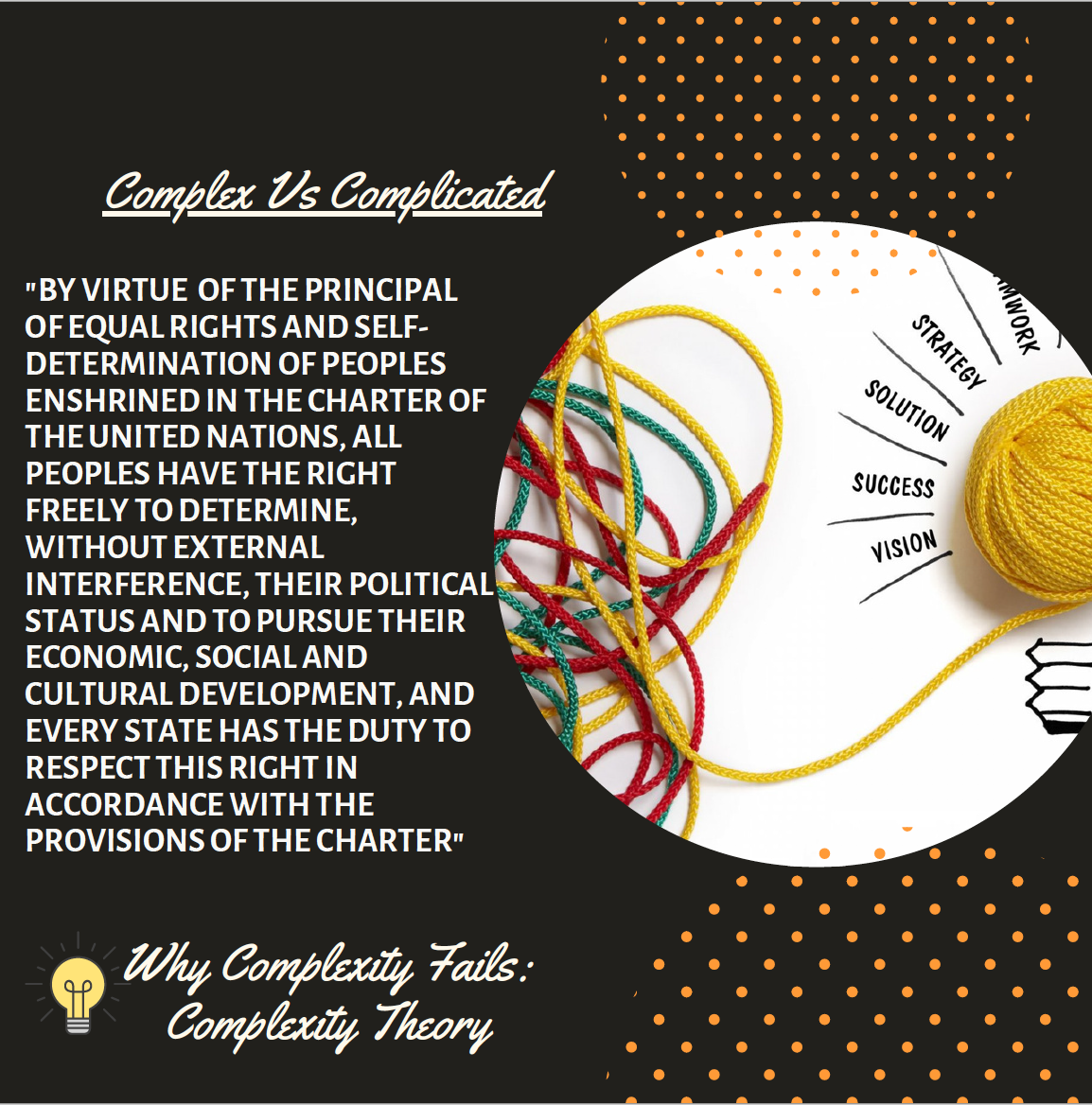by Terre Camille
When, where, and why do we need ethical global engagement?
Ethical global engagement becomes important when we include multilateral organizations, humanitarian assistance, or development aid. When we look at the history of international development, we see multiple actions that countries take to provide aid for other countries are done without the knowledge of the country itself. Through a Ted Talk with Ernesto Sirolli, he explains how the Italians went to Zambia to show them how to grow Tomatoes and Zucchini, just to have their crops eaten by the hippos overnight. Had the Italians asked the Zambians beforehand why they didn’t have any agriculture then they would’ve known that it was because the hippos eat all the agriculture. If we were to solve the miscommunication gap by understanding the depth of the country’s roots before tackling an issue, many problems would already be solved.
Simple, complicated, and complex relationships
“Humans and human societies are complex, social issues are not.” (Fatima Ray) Why development fails: Complexity Theory. An example of a complex system is the ripple effect a smile has on someone’s day and how that may impact their choices throughout the day. Issues arise when we try to fix complex problems with simple solutions. Some examples of the differences between a complex and complicated system:
● My computer is complicated
● My software project is complex
● My house is complicated
● My household is complex
● My blog is complicated
● My thoughts are complex
If humans and human societies are complex, how do we approach them through an ethical lens?
First we must focus on a Human Rights Based Approach, more specifically as a human that has “self-determination”. Self-determination refers to an individual that has the right to choose which opportunities you pursue, where you get to live, or the way you get to live your life, so long as you aren’t harming others. The idea is to move away from charity and to abandon the mindset that since I am better than “them” I must help “them”.
Watch the video here:

